Índices
|
|
|
Encartes maintains ethical codes for reviewers, authors and editors based on the codes of the Committee on Publication Ethics (COPE), available at https://publicationethics.org/
Editorial decisions will not be affected by the origin of the manuscript or by author characteristics such as nationality, gender, sexual orientation, ethnicity, race, religious beliefs, or political philosophy of the authors.
The decision to publish an article is independent of governmental policies or other agencies external to the journal.
Responsibilities of editors
They should take responsibility for what is published in their journal. They should look for ways to improve the journal, attend to the needs and questions of the authors, prevent other non-academic needs from compromising the ethical standards of the journal, be willing to publish corrections, clarifications, rectifications and apologies, if necessary.
Responsibilities of the Editorial Coordination Team Members
Responsibilities of the authors
Their manuscript has not been published and is not being evaluated in other publications.
The information contained in the manuscript has been collected in an ethical manner.
The article submitted is original and that references and data from other works have been cited appropriately.
Responsibilities of reviewers
They are considered bad scientific practices:
Lack of ethics in the publication process.
- Fictitious authorship: appearing as authors or co-authors of research that has not been carried out.
- Duplicate publication: publishing all or part of an already published article.
- Fragmented publication: splitting up a paper for publication as independent articles.
- Inflated publication: adding data to a previously published paper for publication as a new article.
- Self-plagiarism: repeating the same content previously written by the author with the intention of publishing as a new article.
Scientific fraud
- Invention: elaboration of all or part of the data.
- Falsification and manipulation of data: falsifying data or methods to fulfill the hypothesis.
- Plagiarism: taking ideas or phrases without citing the original source.
Incorrection of bibliographic citations: omitting relevant citations. Including citations not consulted. Excessive self-citation.
- Publication bias: forcing data to obtain positive results and high statistical significance.
¬- Publicity: exposing premature results (without verification).
Process for Identifying and Addressing Allegations of Research Misconduct
If misconduct is detected, the sanction or resolution will be guided by COPE codes and flowcharts.
Manuscripts that engage in these practices will not be evaluated. The editor will write to the author, explaining that the article is rejected, the journal's position in these cases and the expected behavior in the future. He/she will also inform the reviewer.
If it is detected that sentences of lesser length have been copied and there is no indication that the data of others have been offered as the author's own work, the editor will write to the author and request that he/she modify those parts or indicate the citations clearly. He/she will also inform the reviewer. If the author refuses to correct the manuscript, the article will be rejected, the journal's position in these cases and the expected behavior in the future will be explained.
The journal Encartes adheres to the ethical production of knowledge. It is open to receive complaints of research misconduct, plagiarism, manipulation of citations and fabrication of data, among others. The denunciation will be received by the editor and will be turned to the Editorial Team, which will appoint a commission to make an exhaustive investigation and verify the denunciation. In case of plagiarism, it will be ruled under the Mexican legal system. The results of such opinion will be informed to both the plaintiff and the defendant. In the event that the accusation proceeds, the necessary measures will be taken to sanction or amend the fault. In the event that the Team decides that it does not proceed, the plaintiGff will also be notified within a maximum period of one month. In the event that the editor(s) of Encartes becomes aware of any allegation of research misconduct related to an article published in its journal, the editor will follow the guidelines of the Committee on Publication Ethics-COPE (or equivalent) in dealing with the allegations.




Encartes, vol. 7, núm. 14, septiembre 2024-febrero 2025, es una revista académica digital de acceso libre y publicación semestral editada por el Centro de Investigaciones y Estudios Superiores en Antropología Social, calle Juárez, núm. 87, Col. Tlalpan, C. P. 14000, México, D. F., Apdo. Postal 22-048, Tel. 54 87 35 70, Fax 56 55 55 76, El Colegio de la Frontera Norte Norte, A. C., Carretera escénica Tijuana-Ensenada km 18.5, San Antonio del Mar, núm. 22560, Tijuana, Baja California, México, Tel. +52 (664) 631 6344, Instituto Tecnológico y de Estudios Superiores de Occidente, A.C., Periférico Sur Manuel Gómez Morin, núm. 8585, Tlaquepaque, Jalisco, Tel. (33) 3669 3434, y El Colegio de San Luís, A. C., Parque de Macul, núm. 155, Fracc. Colinas del Parque, San Luis Potosi, México, Tel. (444) 811 01 01. Contacto: encartesantropologicos@ciesas.edu.mx. Directora de la revista: Ángela Renée de la Torre Castellanos. Alojada en la dirección electrónica https://encartes.mx. Responsable de la última actualización de este número: Arthur Temporal Ventura. Fecha de última modificación: 19 de abril de 2023.
